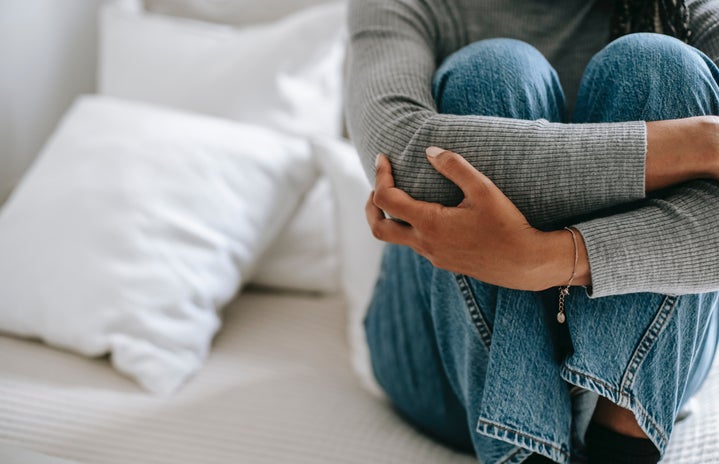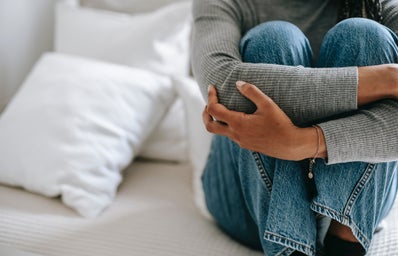Social anxiety can be debilitating. The highly critical self-awareness of how one is being perceived in a social setting can lead to feelings of discomfort and shame that are present prior to, during and even after social events. This fear of being judged as incompetent and inept can prevent many from attending and enjoying social events, hindering the formation of genuine connections. More pressingly, it can have harmful impacts on your self-esteem and sense of self as you feel as though you are incapable of behaving in an ‘acceptable’ way. This mental rumination is also accompanied by physical issues, as the elevated heart rate and blood pressure resulting from such stress can lead to headaches, digestive issues and fatigue.
Fortunately, there are many actions that can be taken to reduce the severity of social anxiety, allowing you to cope better and unlearn the warped and isolating perception anxiety creates about yourself and the world around you. Social anxiety is extremely widespread, affecting large numbers of people. The severity of this form of anxiety exists on a spectrum, and severe implications to your mental health should always be reported to a medical professional such as your GP where treatment may include therapy and medication. This article will provide some actions you can take yourself for those who cannot access or do not require medical intervention or those who have sought help but want some guidance.
Social anxiety can be reduced by making a collection of changes to your lifestyle – eg. to your diet, exercise and sleep habits. Firstly, avoiding or reducing substances such as caffeine, alcohol and nicotine is proven to help lower general levels of anxiety. Caffeine and nicotine are stimulants which raise your heart and blood pressure, emulating the sensations experienced when one is anxious and thus tricking your mind into believing it should be in an anxious state. Alcohol on the other hand is a depressant, which may temporarily reduce the experience of anxiety when consumed due to its ability to release feel-good neurotransmitters in the brain such as Gaba and dopamine. However, as alcohol leaves your system, it creates higher levels of stress and anxiety which can last the following days as your brain tries to reacclimatise its chemical levels. This is what contributes to the dreaded feeling of ‘hang-xiety’, a heightened sense of anxiety the day after drinking which can lead us to question and regret the choices we made when under the influence. Thus, when drinking, it is important to do so in moderation and to be aware that the negative feelings experienced afterwards are often disproportionate to reality.
However, it’s not all about eliminating stuff from your diet, increasing your intake of foods containing certain minerals and antioxidants can boost well-being and minimise anxiety. Anxiety is linked to lower levels of serotonin and dopamine and due to the connection between the gut microbiome and the brain, it is possible to eat in a way which encourages increased production of these neuromodulators. For example, regular consumption of omega-3 fatty acids found in fatty fish (or in supplements) is suggested to have mood-enhancing effects due to the anti-inflammatory properties and high levels of DHA and EPA. Interestingly a study demonstrated consumption of 1000mg of EPA daily to be as effective at controlling depressive symptoms as fluoxetine. In addition, foods such as eggs, brazil nuts, green tea, chamomile tea, yoghurt and turmeric are also recommended to reduce anxiety. Eating a balanced diet containing a range of antioxidants can give you the best chance of feeling good and in turn reduce anxiety levels.
Another way to reduce the experience of anxiety is to partake in activities which soothe the autonomic nervous system. An overactive nervous system is correlated with higher levels of stress and can draw your attention internally which can lead to you ruminating in your thoughts. To do this you can practice meditation, yoga, exercise and breathwork. Slow, deep breaths in which the belly is extended as you inhale, followed by a long-extended exhale activate the vagus nerve and can relieve anxiety and boost mood as relaxing your physical body is a necessary prerequisite to allow your mind to relax.
You can also manage social anxiety by making a conscious effort to be present in social situations, engaging in conversations and actively listening to others can help reduce negative internal chatter. When we focus on ourselves and our thoughts instead of external events, we are disconnected from those around us, and this can allow us to spiral and ruminate. So, when you are in an anxiety-producing situation try your best to focus on the external events even when your brain tries to make you fall into similar patterns of negative thinking. Viewing the situation from an objective point of view can help bring perspective and remind yourself that despite what your mind tells you, no one is thinking about that ‘embarrassing’ thing you did five minutes ago.
To conclude, although social anxiety can seem unmanageable at times there are lots of things that can be done to minimise its severity. Partaking in acts of self-care such as: eating regular, nutritious meals, getting enough sleep and exercising regularly, can help to relieve some symptoms. By prioritising your health, you are then better equipped to challenge negative thought patterns. Mindfulness and breathwork can be used in stressful situations to bring a sense of calm, such tools may make you feel less inhibited by anxiety, allowing you to try new things.

